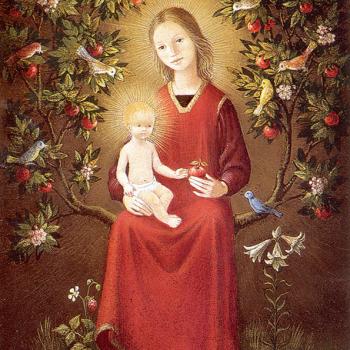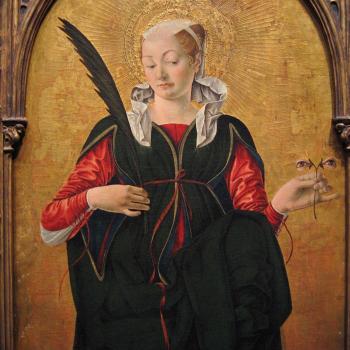
And I’ll write your name.” (Image via pexels.com)
Of late, I have been attending the Ukrainian Rite’s Divine Liturgy (an Eastern Catholic Rite fully in communion with Rome). Not because, like Justin, Henry, the Pezzulos and others, I had a particular inclination initially to the Eastern Rite. I actually initially began going because two of my friends went there, and they have really cute babies. However, I also discovered that the awesome priest there had time to provide spiritual direction, and (he’s a married priest, which is allowed in the Eastern Rite) his wife leads an excellent choir for the Liturgy. Consequently, I’ve been attending there pretty regularly. One thing that has struck, a thought I have about some of my favorite parishes for the Ordinary and Extraordinary Forms, is how the the Mass, or Divine Liturgy, is pedagogical.
In standing before God as members of the Church, we learn how to stand before God as members of the Church. Our liturgical worship of God teaches us the reality we seek through our worship: we learn to unite with God by knowledge and love, learn to participate in His Divine Life, through uniting with God by knowledge and by love, participating in His Divine Life.
In his excellent The Spirit of the Liturgy, Cardinal Ratzinger (now Pope Emeritus Benedict XVI) states that
“Worship, that is, the right kind of cult, of relationship with God, is essential for the right kind of human existence in the world. It is so precisely because it reaches beyond everyday life. Worship gives us a share in heaven’s mode of existence, in the world of God, and allows light to fall from the divine world into ours. In this sense worship…has the character of anticipation. It lays hold in advance of a more perfect life and, in so doing, gives our present life its proper measure.”
This share in the world of God through the anticipatory character of liturgical worship, involves establishing a proper relationship between the Church, in her members, and God. But, this relationship, like any relationship, is not grounded in a fiat claim that it is there, a kind of “let there be relationship,” a demand of love. Rather, this relationship is built through engaging with the Other in a shared life, one that is confirmed by the formal articulation of the relationship.
Think about it like this: when someone makes a relationship “Insta-official” or “Facebook-official” (here’s looking at you, Taylor Swift), that isn’t the beginning of the relationship. The relationship likely, or at least hopefully, grew out of a shared life with another: in conversations, coffees, drinks, dates, walks, meals, prayers, movies, adventures, car rides, etc. There was a time prior to any sort of formal announcement during which the now-couple anticipated and participated in aspects of the being a couple, anticipating their public affirmation of that.
Perhaps even more helpfully, we can look to the process of getting married. For those called to marriage, most of us will date and spend at least six months engaged before we enter the Sacrament of Matrimony with our spouse. The time of engagement, of finding an apartment that perhaps one person moves into, of consolidating finances, of discussing big questions, of changing names, of spending time with each other’s family, is a limited participation in the Sacrament, yet lacking in the fullness of the actual Sacrament. As everyone hopefully knows, the marriage isn’t the wedding, and it certainly isn’t the wedding planning or the engagement period itself. The Sacrament is the Marriage, conferred by the words and actions of the spouses, and the whole of married life is the effects of that Sacrament.
The perfection and fullness of that reality is not yet experienced, although the engagement period is measured by, and leads to, that life. The couple shares in that mode of existence (as a married couple) without yet participating in the fullness of that mode. Despite that engagement is frustrating and stressful, that participation is, in many ways, necessary and helpful to the couple because it begins to teach them about how to be married.
Likewise, the practice of Liturgy, our participation in the Sacrament of the Altar where we receive the Body, Blood, Soul, and Divinity of Christ, teaches us to participate in the Divine Life of God, where we “will know fully, just as [we] have been fully known.”
…Continue reading at The National Catholic Register.












